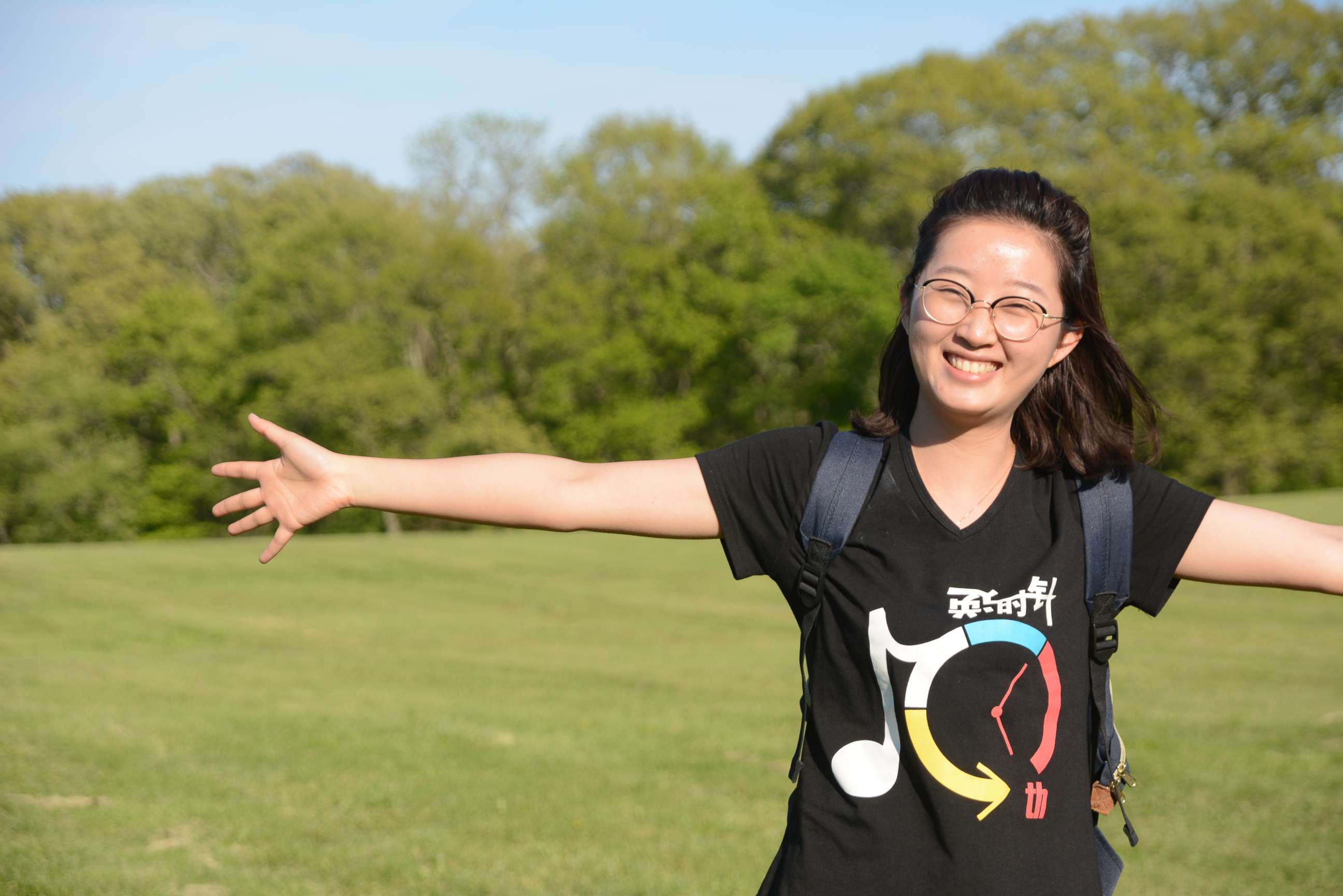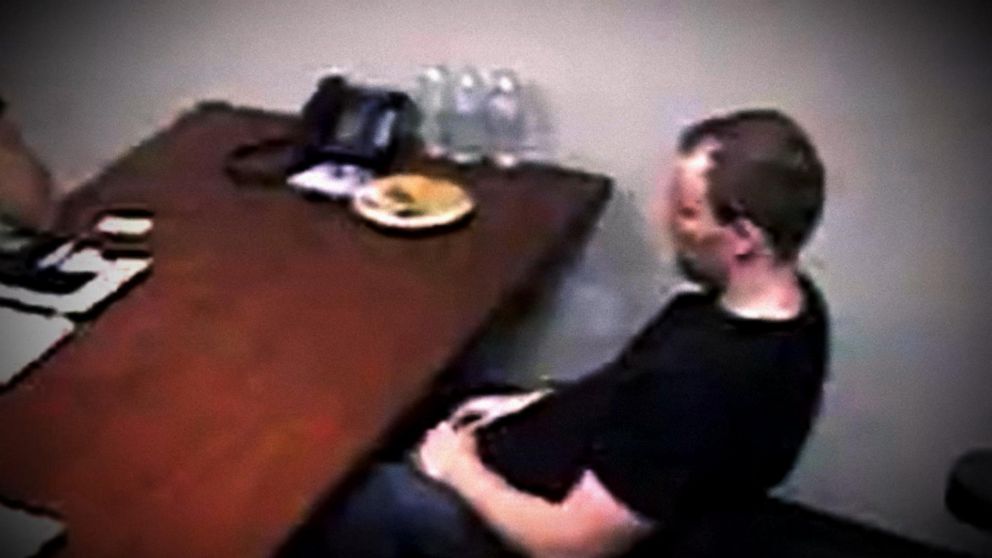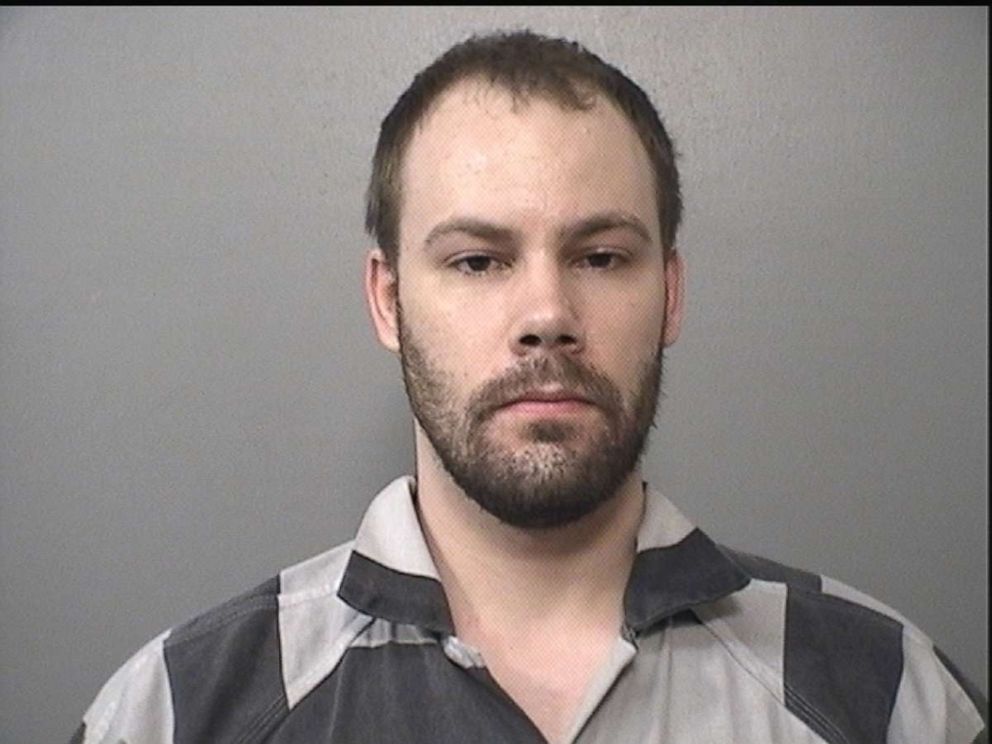Inside the interrogation of the man who killed University of Illinois scholar Yingying Zhang
In 2017, Brendt Christensen was interrogated by the FBI in Champaign, Illinois.
It was shortly after midnight on June 15, 2017, when Brendt Christensen found himself inside an interrogation room at the FBI’s Champaign, Illinois, field office.
At first, Christensen insisted to investigators that he was at home at the same time that a young Chinese visiting scholar was last seen six days earlier. But as investigators pressed him, his story changed.
Yingying Zhang, a 26-year-old agriculture researcher at the University of Illinois at Urbana-Champaign (UIUC), was last seen on June 9, 2017, when she was caught on surveillance video getting into a black Saturn Astra only a few yards away from a bus stop outside the university's PBS radio and television station.
Watch the full story on "20/20" FRIDAY at 9 p.m. ET
"I was either playing video games on my computer or taking an afternoon nap," Christensen told investigators when giving an alibi for his whereabouts at the time Zhang disappeared. But the two veteran investigators sitting across from him believed it was his car seen in the widely circulated surveillance video. A UIUC officer, Sgt. James Carter, had detected a broken hubcap on the Astra seen in the surveillance video and Christensen’s Astra had an identical flawed hubcap.
"I knew his car without a doubt was involved," UIUC Police Detective Eric Stiverson, one of the investigators who was sitting across from Christensen, told ABC News.
Stiverson, a long-standing detective with the department, often deals with on-campus crimes.
"I was actually mowing my lawn at home when I first learned about it," Stiverson said about Zhang’s disappearance. "We’ve had missing students in the past, but they're very rare that we don't find them immediately."

Sitting next to Stiverson in the interrogation room was FBI Special Agent Anthony Manganaro, who was in charge of the team tasked with finding Zhang. Manganaro is now the supervisory special agent of a branch within the FBI’s Child Exploitation Operational Unit.
"Mr. Christensen was very calm and confident at first," Manganaro said in an exclusive interview with ABC News. "One of the things I like to do when I start an interview is just have the person tell their story."
Christensen told investigators he was a former teaching assistant at the university looking for work in the Champaign area. He was also a recent graduate with a masters in physics -- after dropping out as a Ph.D. candidate.
Introductions swiftly passed and Christensen soon found himself having to explain why a young woman, who’d been missing for days, was last seen getting into his car.

"I've seen the videos," Christensen told the two investigators, referring to the publicly released surveillance footage. "But I didn't see me."
To which Stiverson responded to Christensen, “You’ve seen what we’ve allowed you to see.”
What subsequently unfolded was the result of a classic interrogation strategy, with Manganaro taking the role of good cop, complimenting Christensen’s recent master’s degree.
"Wow, that's way smarter than me," Manganaro told Christensen.
Stiverson, meanwhile, assumed the role of bad cop, pressing Christensen on his supposed alibi. Stiverson told Christensen that “I saw you in your shirt -- your arms fully extended” after surveillance cameras had caught the Saturn Astra from various angles.
"We control kiosks of bus stops -- we can look in buses, we can look in every building," Stiverson said to Christensen. "I know that you picked her up. Where did you drop her off at?"
"After reviewing the [interrogation], I realized that, boy, I was really going after him," Stiverson told ABC News. "And it was because I had a sense of urgency that I needed to know where [Zhang] was."
Less than 20 minutes into the interview, Christensen fell silent. Manganaro says Christensen began to visibly shake.
"Mr. Christensen even looks at me, almost wanting help, almost wanting an out," Manganaro said, recalling when Stiverson confronted Christensen. "I remember just staring back at him because I wanted the answer."
"Maybe I mixed up the dates," Christensen told the investigators, breaking the long silence. "I did pick a girl up."
"I knew that he was our guy," Stiverson told ABC News. "That it was not only his car, but he was the driver."

In a complete reversal, Christensen told investigators that he had picked up a young Asian woman, but he said that he had let her out of his car in a "residential area" shortly after. He struggled to disclose where he allegedly dropped her off and could not provide a precise location to investigators.
After being pressed repeatedly to provide more information, Christensen told the investigators he would stop answering questions, adding, “I know the typical advice is to get a lawyer before you answer anything, and I think I’ve tried to help enough.” He was detained overnight for lying to federal authorities. But, as part of a larger investigative strategy, he was released the following day and placed under 24-hour surveillance.
"We thought that by releasing him, we would have the opportunity to find Yingying," Assistant U.S. Attorney Eugene Miller, the lead prosecutor on the case, told ABC News in an exclusive interview. "Until we learned otherwise, we were hopeful that she was still alive and that she was somewhere."
Approximately two weeks later, on June 30, 2017, a day after Christensen attended a vigil for Zhang, he was arrested for kidnapping and killing the Chinese scholar.
"It took a lot of people by surprise because he was a Ph.D. candidate," said Manganaro. "It didn’t, I guess, fit what would be considered a normal profile."
In July of this year, Christesnsen was found guilty of kidnapping resulting in death, and sentenced to life in prison. His arrest and conviction were thanks in large part to an audio confession obtained by Christensen’s then-girlfriend who became an FBI informant.
In the audio, Christensen described how he kidnapped, beat, sexually assaulted and decapitated Zhang.
"For me it was very surreal," Manganaro told ABC News. "I think [Zhang’s] mother was just hoping against hope that Yingying was still alive."
In August, it was disclosed that Christensen’s attorneys had told prosecutors before the trial about information they had received from their client concerning the possible whereabouts of Zhang’s body. Because the information was provided as part of a limited immunity agreement, it could not be disclosed until the trial was concluded. At a press conference held by an attorney for the Zhang family, it was revealed that Christensen told his defense team that he had disposed of Zhang's dismembered body in three separate garbage bags, which he placed in a dumpster outside his apartment in Champaign. Law enforcement believes the bags were then taken to a landfill in Danville, Illinois.
"By the time they provided that information, it was almost 18 months after she would have been placed in the landfill," said Miller.
"It is evident that any attempt to recover Yingying’s remains would be complicated and expensive, would require government oversight and the cooperation of the landfill owners and would have no certainty of success," said Steve Beckett, attorney for the Zhang family.
"It just adds to the tragedy," Miller said, as the family cannot give its daughter a proper burial. "Yingying is an incredible young lady. She wanted to make a difference in the world."




